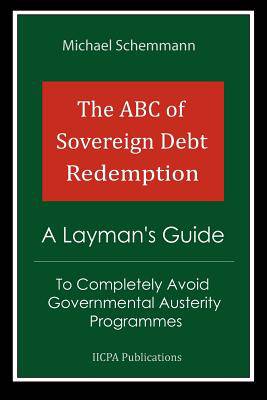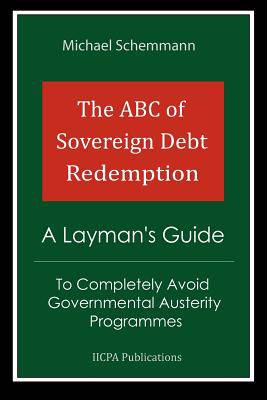
- Afhalen na 1 uur in een winkel met voorraad
- Gratis thuislevering in België vanaf € 30
- Ruim aanbod met 7 miljoen producten
- Afhalen na 1 uur in een winkel met voorraad
- Gratis thuislevering in België vanaf € 30
- Ruim aanbod met 7 miljoen producten
Zoeken
The ABC of Sovereign Debt Redemption
A Layman's Guide To Completely Avoid Governmental Austerity Programmes
Michael Schemmann
Paperback | Engels
€ 25,45
+ 50 punten
Omschrijving
The Author Michael Schemmann is a professional banker, certified public accountant, and university professor of accounting and finance. His proposal is based on certain premises, e.g.: -The nations' sovereign debts consist largely of private commercial banks' quasi money created by way of an accounting abstract - if not an accounting perversion - while the states' (including the Eurozone's) constitutional money power lies idle and unused. -The private banks' quasi money is not legal tender for the settlement of debts, public and private, and is therefore the weakest element in the payment system, constantly threatened by illiquidity requiring central bank intervention and government bailout. -Given these insights, national debt redemption is a very simple exercise, resulting in prescribed accounting transactions in accordance with generally accepted accounting principles to reverse the governments' borrowings of quasi money, and at the same time correct the banking system as demanded 185 years ago by Thomas Jefferson, 3rd President of the United States, for the United States, and by Professor Irving Fisher 65 years ago. -This booklet provides a review, an analysis of the status quo, as well as a solution that is not dissimilar to the successful "CDG Plan" for Germany's highly successful monetary reform following financial collapse after World War Two resulting in the creation of the Deutsche Mark which became the backbone of the present Euro.
Specificaties
Betrokkenen
- Auteur(s):
- Uitgeverij:
Inhoud
- Aantal bladzijden:
- 106
- Taal:
- Engels
Eigenschappen
- Productcode (EAN):
- 9781463748265
- Verschijningsdatum:
- 21/07/2011
- Uitvoering:
- Paperback
- Formaat:
- Trade paperback (VS)
- Afmetingen:
- 152 mm x 229 mm
- Gewicht:
- 154 g

Alleen bij Standaard Boekhandel
+ 50 punten op je klantenkaart van Standaard Boekhandel
Beoordelingen
We publiceren alleen reviews die voldoen aan de voorwaarden voor reviews. Bekijk onze voorwaarden voor reviews.











